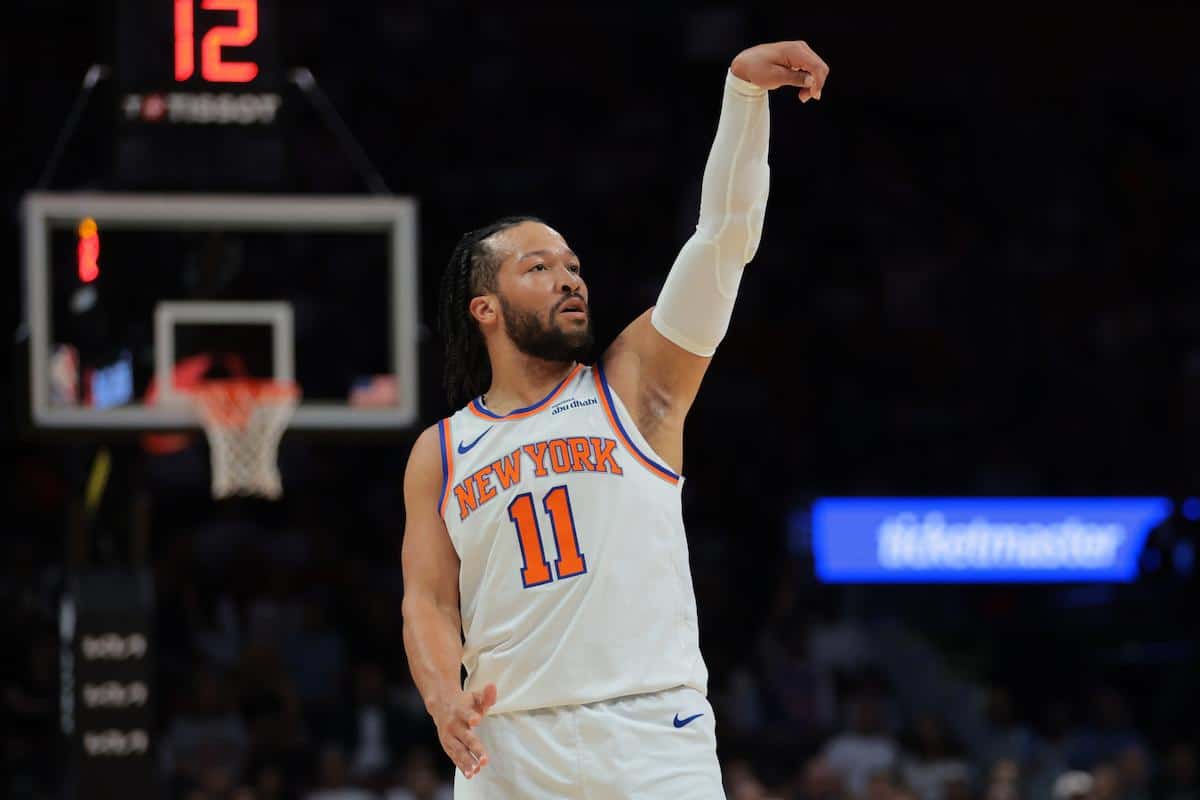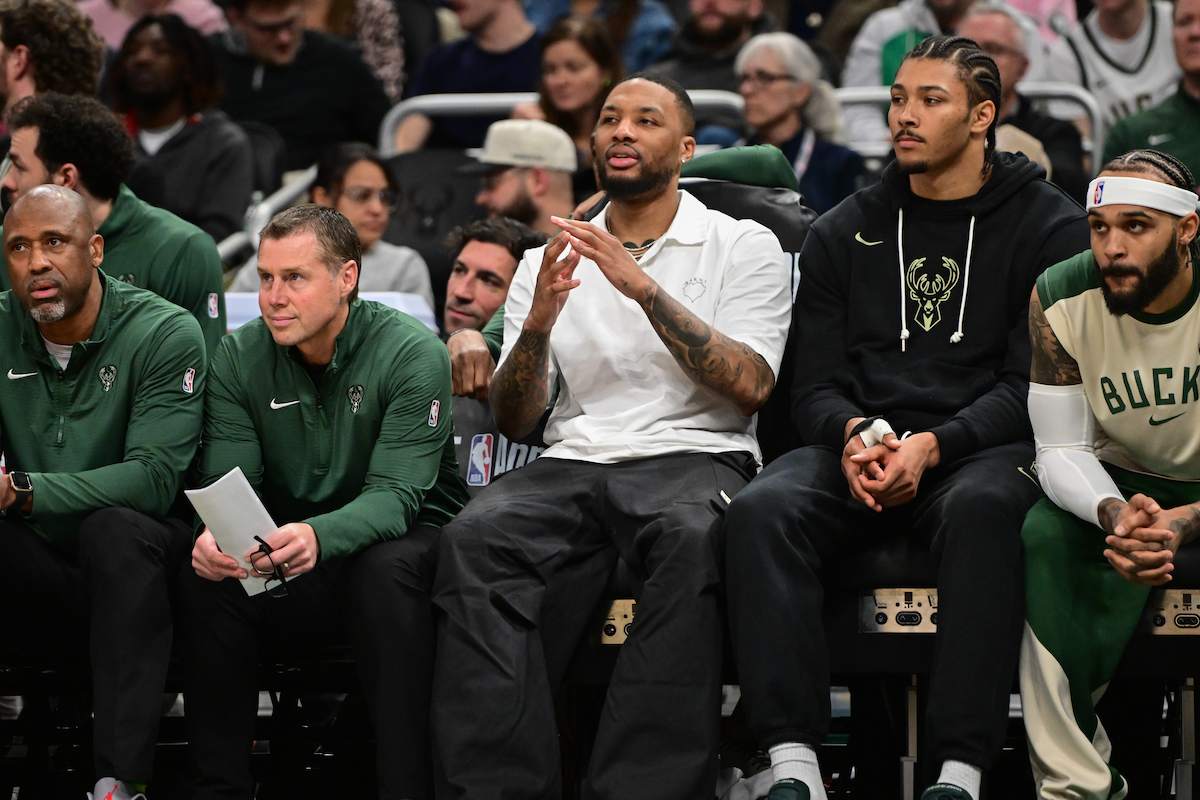President of Basketball Operations Brad Stevens and the front office constructed a team of players built for sustained success. Despite Stevens’ modesty and propensity to deflect credit and praise, he knew the exact combination of skill and personality traits to target to not only build a championship team, but extend its window.
In his Media Day interview with NBC Sports Boston, Stevens gave us a glimpse into what he looks for in a player. His perspective boiled down to three key factors, and the first was the most obvious: talent is king.
“To be competitive in the NBA, and to win in the NBA you have to have a requisite level of talent,” Stevens said. “There’s only so many people to choose from in the world that can play in this league.”
When you look up and down this Celtics roster, the talent jumps off the page. Players are asked to fill a role for the betterment of the team, but Brad doesn’t believe they fall into the category of role player.
“I think as you start looking at our team, we have some guys that people call ‘role players’ that aren’t role players. They’re just really good basketball players,” Stevens said.
Photo by Brian Sevald/NBAE via Getty Images
One thing the NBA world continues to prove is that talent alone is not enough. Ego will always be there, and in some cases the right amount is necessary, but the organization puts a premium on sacrifice. In comparison to talent, mentality and chemistry are equally important, and also something that Stevens cares deeply about.
“Secondly… you have to have self-awareness.” Stevens said. “You have to know kinda where you are, how you fit, what strengths you bring to the table.”
Among Stevens’ recent roster additions of Jrue Holiday, Derrick White and Kristaps Porziņģis, each understood perfectly that to succeed, they needed to do whatever was asked of them. This is also what makes head coach Joe Mazzulla such an effective leader for this team — he puts players in a position to amplify their strengths.
:no_upscale()/cdn.vox-cdn.com/uploads/chorus_asset/file/25639567/1730500864.jpg)
Photo by Chris Marion/NBAE via Getty Images
With talent and self-awareness checked off the list, Stevens has one more trait that he values in a player.
“We really look for people that have a growth mindset,” Stevens said. “They’re not going to get too high or too low. They’re just going to keep working trying to improve and get better”
It helps to have two stars that will always set the tone in this regard.
“I think that’s led by Tatum and Brown.” Stevens said. “Those guys, you know have accomplished all that they’ve accomplished at this young of an age, but they just keep working.”
The work never stops for the centerpieces of this team, and the same is true for the President of Basketball Operations. After winning the title, Stevens wasted no time locking down as many returning players as he could.
Even without much roster turnover, Brad brought in a few new faces. Each of these additions echoed his sentiments as if they were reading directly off of a script.
Lonnie Walker IV joins the Celtics for training camp without a guaranteed contract. He has a lot to prove, and little time to do it. While recognizing his own talent on the court, it is the self-awareness that stands out.
“I can obviously score in a plethora of different ways, but in order for me to even get a few minutes or you know earn my minutes, it’s gonna come from the defensive side.”
Lonnie is just 25 years old and trying to earn a spot on his fourth team in seven seasons. He’s not going to worry about things outside of his power though, instead he’s planning to control the controllables.
“You can have all the talent in the world, but if you don’t have discipline and consistency off court, and trying to be the best of your capability, you’re never going to get to where you want to get to,” Walker said.
Another Celtics newcomer, rookie Baylor Scheierman, spoke about his own growth mindset.
“I think you can always continue to sharpen up your game,” Scheierman said. “For me, a lot of it is just defensively trying to become more explosive, quicker, learn the schemes.”
One of the most effective methods for young players to expand their knowledge and understanding of the game is to use those that have walked in their shoes as a resource. Baylor has already started this process.
“I’m just trying to learn as much as I can from everybody,” Scheierman said. “I’m just looking to take in all the information and be a sponge.”
Fellow rookie Anton Watson reinforced Scheierman’s sponge-like nature when asked about which veteran in particular he’d like to spend time learning from.
“Honestly, all of them,” Watson said. “The obvious answer is probably Al… similar positions and just the way he plays the game, he makes good reads. I feel like I can do a little bit of that.”
When it comes to skill and self-awareness, Watson understands who he is as a player and believes he has the versatility to fit whatever the team is looking for.
“Any role I get put in, I feel like I can adjust, and with good players I feel like it just makes me play better,” Watson said.
Each of these players have a lot of work ahead of them to see minutes this season, or at all in a Celtics uniform. Whether they’re nightly rotation pieces or not though, it’s clear that they come from the exact mold that Brad Stevens wants to fill his organization with.
“If we can find guys that really have the desire to win… and be self aware enough to do so, it’s an easy fit,” Stevens said.
You don’t win Executive of the Year by being complacent. If there’s an avenue to improve the team, Stevens will explore it. Even on the margins, he stays true to his philosophy of acquiring talented individuals who are self-aware of their capabilities and focused on the daily grind of improving.
Other executives may not have the same eye for spotting these characteristics, but Brad has perfected a winning formula.






